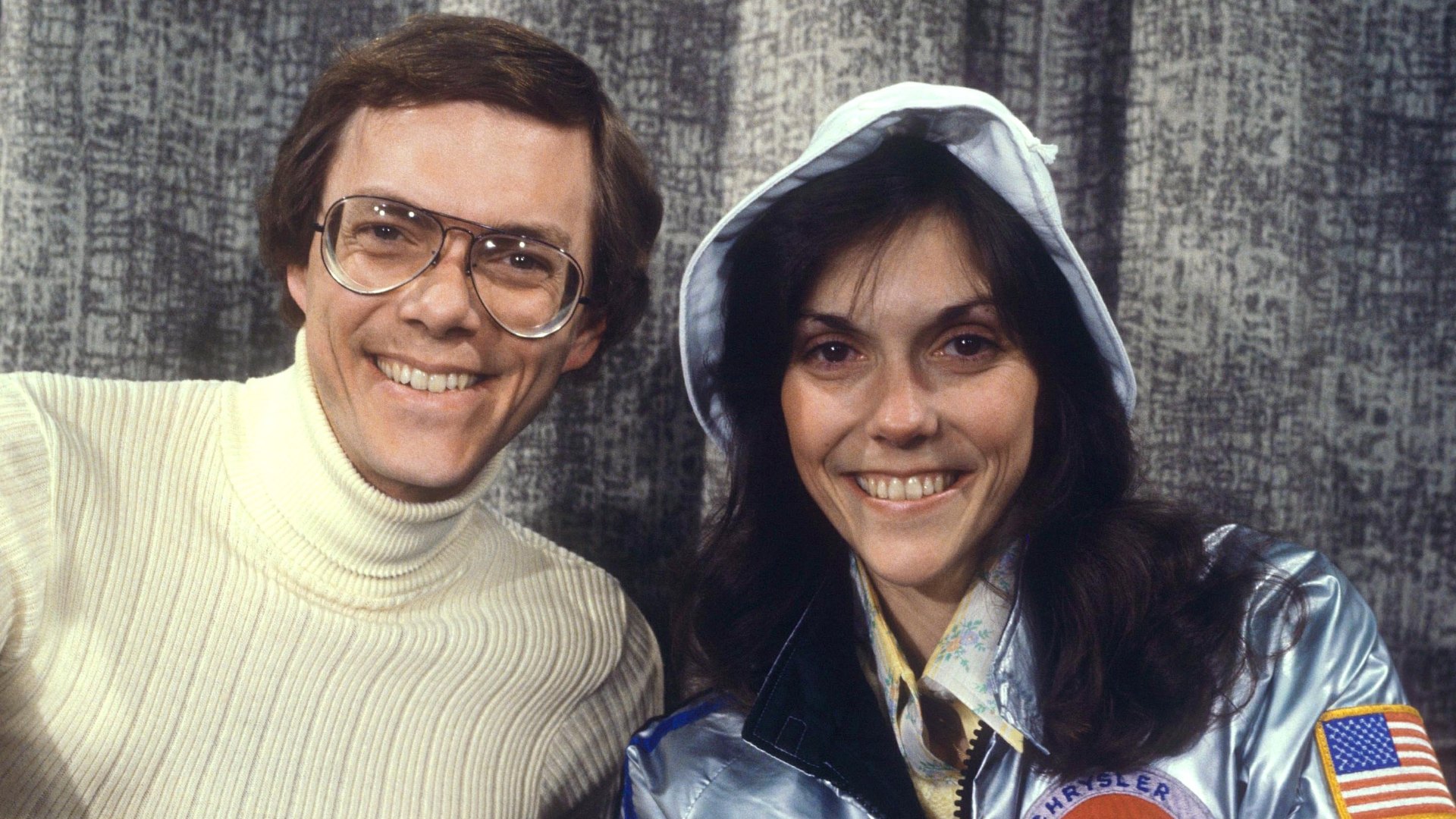
A Legacy Etched in Melody: The Unforgettable Rise and Resonance of the Carpenters
From the moment **”(They Long to Be) Close to You”** graced the airwaves in 1970, **the Carpenters** emerged as a unique and enduring musical force. Their warm, harmonically rich melodies quickly made them a household name, crafting tunes that became the backdrop to countless milestones—**weddings, graduations, and joyful celebrations** across America. Hits like “We’ve Only Just Begun,” “For All We Know,” and “Top of the World” proved that their music not only resonated deeply but also stood the test of time.
Richard Carpenter, now 75, fondly recalls the whirlwind nature of their rise to fame. “We were an overnight sensation,” he admitted, referencing their rapid transition to headlining shows in Las Vegas just a year after their debut. Yet, as dazzling as their ascent was, it was equally bittersweet. In 1983, the world was shaken by the loss of **Karen Carpenter**, whose velvety voice had enchanted millions. Her untimely death, brought on by heart failure stemming from her battle with **anorexia**, silenced one of the most distinctive voices in pop history.
Now, a fresh and intimate chronicle — “Carpenters: The Musical Legacy” by Mike Cidoni Lennox and Chris May, with contributions from Richard himself — aims to preserve their remarkable story. It’s not a typical biography. As Richard puts it, “It’s more about the music,” a perspective that makes the book especially meaningful to fans and music historians alike.
Reflecting on his early musical moments with Karen, Richard shares a humble beginning: “I was 16 and she was 13… At the time, she didn’t have the marvelous voice that developed later.” Her musical journey truly began when she discovered a drum set brought home by one of Richard’s bandmates. It was, as he recalls, the moment her interest blossomed.
As young students, both siblings even found a loophole to avoid gym class by joining the school band — with Richard nudging Karen towards the glockenspiel. Musicianship, it seems, was always their true path.
Their big break came with a record deal from **A&M Records**, a move that nearly stalled when their initial single, “Ticket to Ride,” faltered commercially. “Pretty much the whole label thought Herb Alpert had had his experiment with us,” Richard recalls. But Herb chose to give them one more shot—and that chance birthed the hit “Close to You,” cementing their place in pop music history.
That song, in particular, remains Richard’s proudest achievement. “The arrangement and the record are really something,” he says, noting that he created the arrangement without having heard the original Dionne Warwick version, resulting in a fresh and iconic sound.
Among his favorite songs, “Superstar” and “Yesterday Once More” stand out. Yet not all memories are without regret. He expresses disappointment in the 1978 album “Christmas Portrait,” due to his own struggles with prescription medication at the time. “It’s a beautiful album, but it’s more of a Karen Christmas album. I didn’t contribute as much as I should have.”
Following Karen’s passing, Richard found solace in completing their unfinished recordings. “Karen sounds beautiful. But you know, they’re outtakes.” Still, the music remained a vital connection to his sister and the artistry they shared.
Asked what he misses most about Karen, Richard’s answer is poignant: “She was my buddy. A voice like hers comes along once every three generations, maybe.” He believes that had she lived, they’d still be making music today. “We would have had hundreds of recordings by now.”
Now enjoying a quieter life in California with his wife of 38 years and five grown children, Richard treasures both his **health** and his passions — including his impressive car collection and continued musical projects. His recent release, “Richard Carpenter’s Piano Songbook”, revisits Carpenters classics in elegant new arrangements, underscoring the timelessness of their catalogue.
Through memory, melody, and the enduring strength of the music they made together, the Carpenters continue to touch hearts. As Richard reflects, “There’s always something else going on.” Indeed, **the music plays on**.